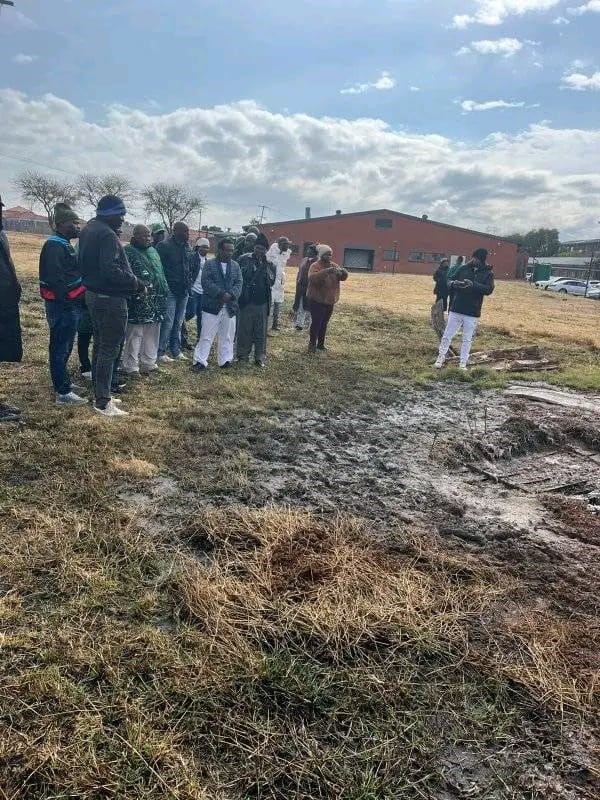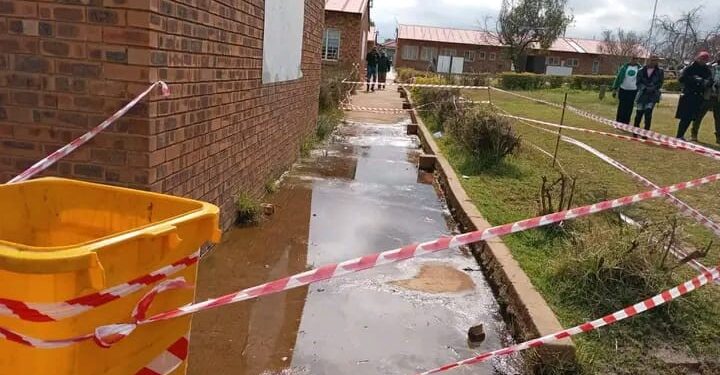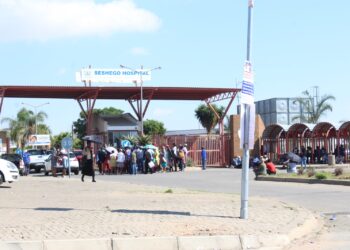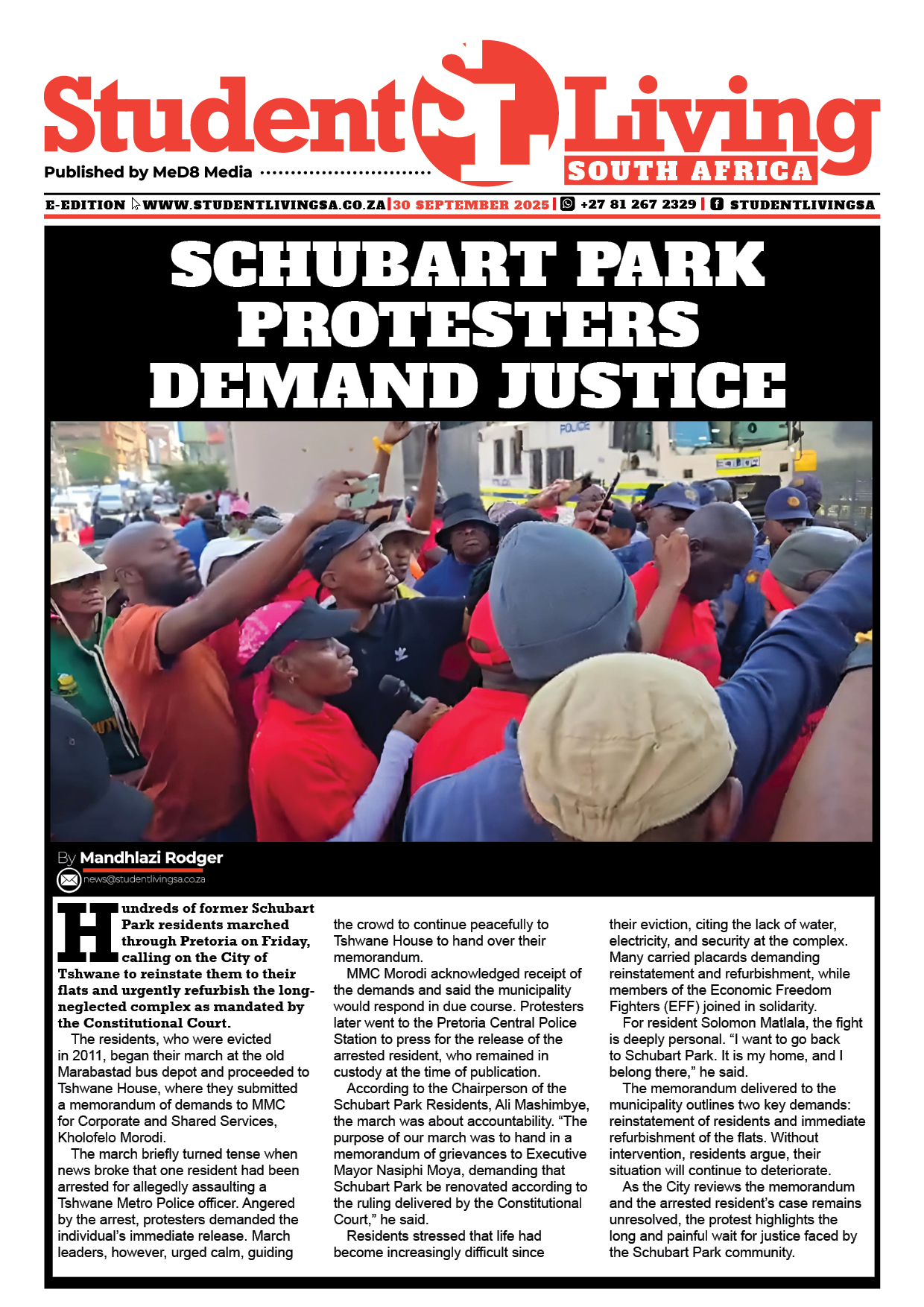By Boipelo Modise
In Ga-Rankuwa, Pretoria, the safety of young learners at Bachana Mokwena Primary School has become a source of growing concern. As of early August 2025, about 400 children-mostly in Grade R and the Foundation Phase have been kept at home since mid-July over fears that the school’s classrooms, built on a wetland, are unstable and hazardous.
“We raised these concerns many times, but nothing has been done. We are risking our lives and those of our learners every day,” said one educator, who asked not to be named.
The classrooms, surrounded by underground water, have heightened parental anxiety that the buildings could collapse at any moment. Damp, unsanitary conditions have also raised fears of long-term health effects for the children. School Governing Body chairperson Agnes Mashibymi said parents had repeatedly taken the matter to various government departments, but were met with indifference. It was only when Gauteng MEC for Education Matome Chiloane attended a public event that they were able to confront him directly.

“We are extremely worried about the safety of our children,” said Nompumelelo Mokoena, a parent of a Grade 5 learner.
MEC Chiloane had been at the YMCA Centre to launch the 2026 online admission system when protesting parents arrived, halting the event to demand urgent action. He promised to provide mobile classrooms to ensure safe and immediate learning spaces for the children.
Political parties have since joined the calls for swift intervention. The uMkhonto weSizwe Party (MKP) conducted an oversight visit led by MPL Brain Molefe, who said the school’s problems had persisted far too long. He stressed that the issue must be addressed as a matter of child safety, not political point-scoring. Molefe said the MKP would raise the matter in both the Gauteng Legislature and the National Assembly to push for expedited solutions.
ActionSA’s Gauteng leadership also condemned the situation, describing the construction of the school on ecologically unsuitable land as “symptomatic of systemic governmental failure.” The party demanded public disclosure of who approved the school’s location, details of environmental and building regulation breaches, and disciplinary action against those responsible. They also called for relocation or environmental rehabilitation plans funded through accountability measures rather than taxpayers’ money. ActionSA linked this case to a similar failure at Mayibuye Primary School in Alexandra, which was also built on a wetland.
“We’ve heard it all before. Our children cannot wait another five years for action,” said Lerato, a parent of a Grade R learner.
As of the latest updates, the arrival of mobile classrooms remains crucial for resuming safe operations. Until then, learners in Grades R to 3 remain out of school—a significant disruption to their education.
















